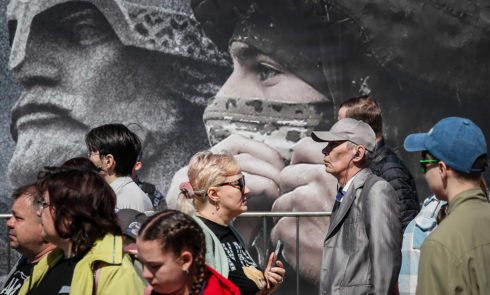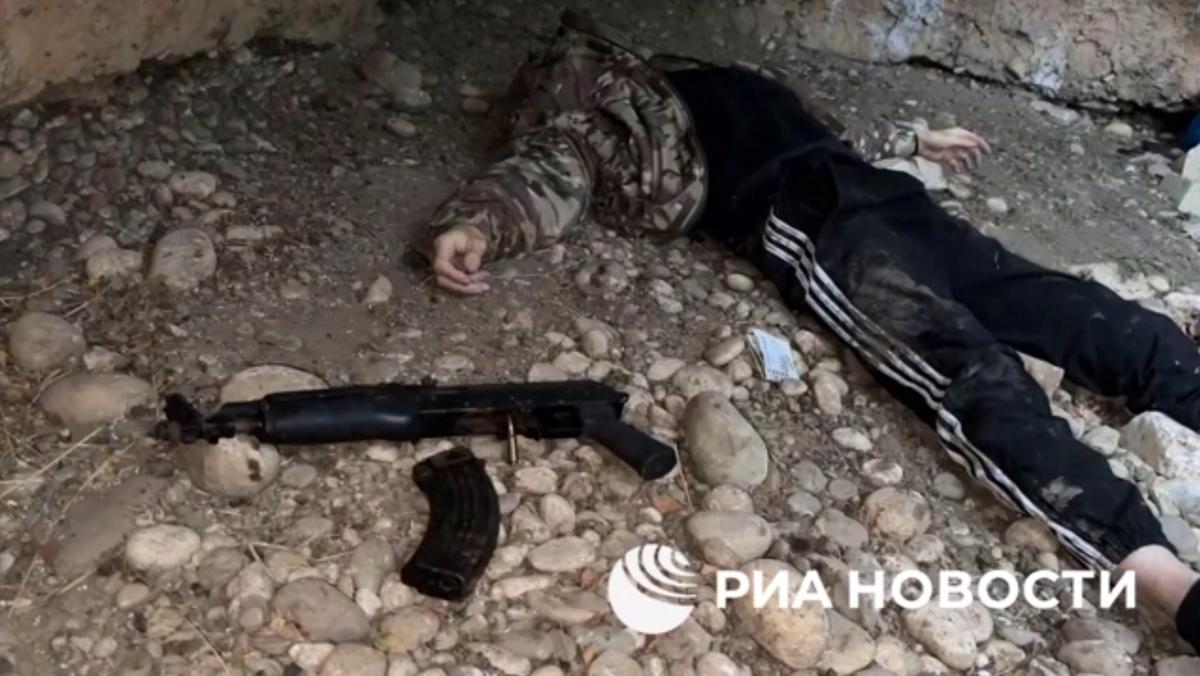In Israel, nearly everyone is conscripted into the military when they turn 18, but Tal Mitnick refused. He became the first Israeli 18-year-old to conscientiously object to joining the Israel Defense Forces as nationalist sentiment soared during Israel’s assault on Gaza. In response, the government sentenced the teen to 30 days in prison, potentially with more if he continues to refuse. The sentence is out of step with the normal precedent: Many objectors in the past faced up to 10-day stints behind bars.
Like many so-called refuseniks, Mitnick also faces mass ostracization and threats in a society where objecting to serve is often seen as a national betrayal — made all the worse amid Israelis’ shock and the government’s fierce response to Hamas’s October 7 attack. Still, Mitnick was steadfast.
In September, things would have been different. Dissent was on the rise. The Israeli left and anti-government bloc had been growing over the past year, as hundreds of thousands took to the streets to protest Israeli Prime Minister Benjamin Netanyahu’s plan for a judiciary power grab. The protests had begun to include objection to Israeli authoritarianism, in particular against Palestinians in the occupied territories. Mitnick said his refusal to serve was about these very issues: “I do not want to take part in the continuation of the oppression and the continuation of the cycle of bloodshed, but to work directly for a solution.”
Whatever sentiment against the occupation had been unearthed during the protests, though, fell away after October 7 — especially for conscientious objectors seen to be abandoning their country.
“To refuse to serve is considered to be betraying your country — certainly now in a time of war,” said Mairav Zonszein, an Israeli American journalist and senior Israel–Palestine analyst with the International Crisis Group. “Even people who are even against the occupation, or who consider themselves to be leftist, they’ll argue that you’re leaving the difficult job of defending Israel’s borders to other people, and how could you, and 1,000,001 things that people will say is betrayal.”
“The process of conscientious refusal is not an easy one.”Mitnick is not alone. He is part of a growing network of young Israelis refusing military service and encouraging others to join them — even as pressures mount after the October 7 attack. Along with some of the others, Mitnick is part of Mesarvot, Hebrew for “we refuse,” where young people support each other as they prepare their Israel Defense Forces, or IDF, refusals. Mesarvot provides conscientious objectors with support in preparing for imprisonment and legal cases, and, perhaps most importantly, by giving them a community.
“The process of conscientious refusal is not an easy one,” said Iddo Elam, who plans to refuse when his conscription date arrives a few months after graduation and is part of Mesarvot. “You can feel very secluded as an outsider. So this network basically gives a home to the people who decide to refuse. I even remember many talks with refusers that came back from jail before their next sentence, and talked with each other about how the past, for example, two weeks have been in prison. It raises their morale to go again, and to not give up.”
Anti-Occupation to Refusal
Elam’s views on the Israeli–Palestinian conflict were clarified by his activism, which had taken him to the occupied West Bank and brought him into contact with Palestinians, whom he befriended. His stances were hardened not only as he watched the Israeli military’s treatment of his new friends, but also in how the soldiers viewed him. “They treat me as a traitor. They laugh at my face when they see me with Palestinians,” he said. “I realized that this whole system is very corrupting.”
“They treat me as a traitor. They laugh at my face when they see me with Palestinians.”As he concluded that he planned to refuse, Elam sought out others. Even Israelis who opposed the occupation sometimes didn’t understand: Some soldiers seek to not serve in combat units, but even were incredulous at the idea of full refusal. It wasn’t surprising: Israeli education laws require preparing students for IDF service.
The expectation that everyone serves is so pervasive that few register that this makes them part of a system that oppresses Palestinians. “A lot of the Israelis that do not consider that is because they were born into Israeli society, a society that from kindergarten teaches us about previous wars, about Israeli nationalist heroes,” Elam said. “I would almost say I cannot blame the people who do join the army. But at the end of the day, us refusing is us attempting to bring this up into conversation to make more people do it.”
Yona, another soon-to-be refusnik who asked The Intercept to withhold her last name because of the sensitivity of the issue, said that as more people over the past year have connected the erosion of democracy to the occupation, Mesarvot has played a pivotal role in providing community, demystifying refusal, and preparing young Israelis for the consequences.
“There are plenty of people who are, you know, at the level where they could afford to do it and just don’t consider it as a possibility or don’t consider it as something viable, as something worthwhile,” Yona said. “And that’s certainly something that Mesarvot helped change — bringing that voice, making people realize it exists. It’s something people do proudly, it’s something that is important, and it makes noise.”
Democracy and the Occupation
For Mitnick, Yona, Elam, and others, preparing for refusal with groups like Mesarvot doesn’t come without precedent, nor in isolation. The Israeli teenagers have spent much of the past year protesting the Israeli government’s anti-democratic moves, its treatment of Palestinians, and the occupation more broadly.
Last February, Mesarvot activists were present when protesters traveled deep into the West Bank villages of Masafer Yatta to protest the eviction of some 1,300 residents from their homes. The Israeli military had declared the area a closed “firing zone” — ostensibly for security and training purposes — decades before, with the aim of getting the Palestinian villagers out. With the push to expel residents last year, the activists showed up in violation of the law, since entering closed zones was forbidden.
The group also organized protests on Israel’s side of the Green Line, which roughly demarks Israel’s internationally recognized borders from the occupied territories. In May, Mesarvot activists gathered at Beit Sokolov, a building in Tel Aviv which houses the Israel Journalists Association, in honor of the anniversary of the IDF’s killing of Palestinian American journalist Shireen Abu Akleh.
The following month, as members of Mesarvot demonstrated in memory of Sarit Ahmed Shakur, an 18-year-old victim of a homophobic murder, a member of the group said an activist was attacked by undercover police officers who tried to confiscate a Palestinian flag. The group said the activist was arrested after he tried defending himself and was subject to “contemptuous and degrading treatment, misogynistic, homophobic and transphobic curses.”
With protests against the government’s seizure of the judiciary swelling nationwide, Mesarvot gained steam, connecting the refusal to serve with Israel’s anti-democratic turn. While the protests had come as a surprise for much of the outside world, the country’s left wing had long since warned that the occupation, holding millions of Palestinians in stateless subjugation, was bound to bring authoritarianism creeping back into Israel. Now Mesarvot activists were among the small minority of Israelis connecting the erosion of democracy with the occupation itself.
“The dictatorship that has existed for decades in the territories is now seeping into Israel and against us,” said a September letter by 230 Israeli teenagers announcing their forthcoming refusal to join the IDF. “This trend did not start now — it is inherent to the regime of occupation and Jewish supremacy. The masks are simply coming off.”
The teens had planned an event at a Tel Aviv high school to declare their refusal publicly, with the support of their principal. The school’s board of directors tried to block the protest by suspending the principal and canceling the event. The principal resigned in solidarity with the teens, and they hosted the event anyway, in front of a crowd with additional hundreds more. Since then, at least 50 more young Israelis have signed on to the refusal letter and, in recent months, some of the signatories burned their conscription orders as they announced their refusals.
“Very Militaristic”
Since October 7, Israel has maintained a widespread crackdown against dissenters, particularly against Palestinians. Communications Minister Shlomo Karhi pushed in October for the arrest of those deemed to be a threat to the “national morale.” Later, he tried to sanction Haaretz, a liberal daily newspaper, for its criticisms of the war effort in Gaza and for purportedly being a “mouthpiece for Israel’s enemies.” Israeli police chief Kobi Shabtai said in mid-October that there would be “zero tolerance” for anti-war demonstrators — threatening to send them to Gaza.
There was little tolerance. Officers arrested protesters at will, including those who’d lost family members in the October 7 attack. In early November, Israeli forces arrested former member of Parliament Mohammad Baraka, a Palestinian citizen of Israel, who was on his way to an anti-war protest, along with four other protesting Palestinian politicians. Meanwhile, Israeli police have pursued at least 250 prosecutions — largely against Palestinian students, largely for social media posts — targeting dissenters. This weekend, Israeli police cracked down on anti-war demonstrations in Jerusalem and Tel Aviv, detaining a handful of protesters and throwing some to the ground.
This is the atmosphere, the post-October 7 world, that the activists of Mesarvot find themselves in. Yet few have wavered. Support, Elam and Yona both said, especially from the international community, played an encouraging role as they continued to tie their wider protests to their refusals. “It strengthens me, makes me feel less alone,” Yona said. And she sees their protests as part of a larger struggle for dignity and equality being led by Palestinians.
“Israeli society right now is very militaristic,” Elam added. “I want to say to the world that peace and anti-apartheid, anti-occupation activists do not feel safe. A lot of them have been attacked, have been doxxed, have been threatened, arrested.”
Elam singled out the arrests of Palestinian citizens of Israel, often for terror-related charges linked to little more than denouncing the Israeli war on Gaza. “Someone sees that the police arrest people because of online posts about this war, that is an issue that should bring up massive protests to the extent that we saw against Netanyahu,” Elam said. “We cannot say that we live in a democratic country when not only people are being silenced, but people are being actively arrested and oppressed for only saying stuff online.”
Now more than ever, the teenaged activists of Mesarvot see themselves as but one aspect of a movement, just one way to pierce the bubble of repression and nationalism surrounding Israeli society. They want their movement to grow and for the larger movement for democracy and justice to grow, too — to regain and then sustain the momentum they’d gotten before October 7.
Resistance is out there, Yona said. That’s what the refusals to serve in the IDF can show. She knows because it showed her a path to more than merely joining a movement. “It makes you feel like you’re not just taking on the mantle,” she said. “You’re doing something that is even more important in my eyes, which is working towards an equal society for everyone who lives between the river and the sea.”
The post Israeli Refuseniks Forsake Army Despite Post-October 7 Nationalist Frenzy appeared first on The Intercept.

 4 months ago
40
4 months ago
40



